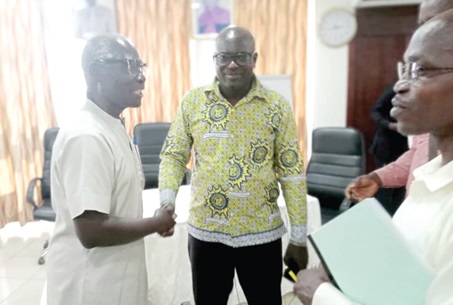
Language, low proficiency causes of poor Literature-in-English performance
A research by the West African Examinations Council (WAEC) has identified the kind of language used in the area of poetry, high number of poems and the students’ low proficiency in the English Language as the reasons for the poor performance of students in Literature-in-English in the West African Senior School Certificate Examination (WASSCE).
Advertisement
From the teacher's perspective, they said the language used in the poetry component of the subject was complicated and difficult to study and understand.
They also identified too many poems for learners to study, students’ proficiency in English Language and the language used in non-African poetry as some of the causes.
On the part of the students, they said poetry was difficult to understand due to the complicated language used with complex and voluminous textbooks, posing challenges in comprehension.
They said inadequate textbooks and teaching and learning materials impeded effective learning with insufficient teaching time and limited practical sessions being also responsible for the poor performance.
In addition, the research identified low proficiency in the English Language and reading comprehension as some other causes of the poor performance in the subject.
Other factors are lack of teaching and reading materials and students’ negative attitude towards reading, inability of examiners to adequately read and understand the prescribed text, irrelevant biographical details of authors included in answers and students preference for a particular genre of Literature-in-English.
The acting Head of the Accra Section of the Research Department of WAEC, Kwaku Dankwa, made this known when he presented the research findings in Accra.
The research, conducted in 2021, involved over 2,184 students, 314 examiners and 129 teachers in the country.
The event was attended by teachers and students of Literature-in-English both in-person and online.
It was also attended by a representative from the National Council for Curriculum and Assessment (NaCCA).
Pass rate
The pass rate in Literature in English was 26.2 per cent in 2015; 25.7 per cent, 2016;, 26.8 per cent, 2017; 20.1 per cent, 2018; 23.6 per cent, 2019; 17.7 per cent, 2020; 29.60 per cent, 2021 and 35.28 per cent in 2022.
Mr Dankwa said the research was informed by the poor performance of students in the WASSCE and the need to find out the cause and provide solution.
iterature in English, he said, was a subject that was needed for persons desirous of pursuing professions such as Journalism, Law, Communications, among others, adding that, “we have realised that as much as people want to study it, they are not passing”.
He said the subject was a discipline in humanities that emphasised close observation and analysis, imaginative response, thinking in a broad intellectual and historical context, and the skills of speech and writing.
The study of literature, he said, allowed students to learn virtues such as trustworthiness, respect, responsibility, justice, patriotism, kindness, honesty, mercy and courage and enhanced the development of all language skills.
However, when the respondents were asked whether the subject should be removed from the curriculum, 32.9 per cent of students agreed with 10.9 per cent of teachers agreeing as well.
The Chief Examiner in Literature-in-English, Dr J.A. Sackey, said the topic was very important, hence the need to look at ways to overcome the challenges.
Literature, he said, was an expression and that coming into it meant one needed to have some language skill.
“You have to be able to express yourself and if you can’t express yourself, how can you study literature,” he asked.
However, he said, the future was bright for Literature-in-English.




